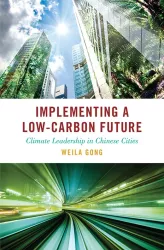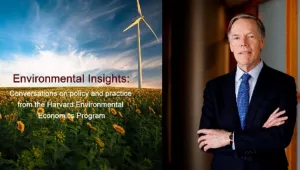One of the most salient aspects of American environmental policy in the past year has centered on the role of science and economic analysis in setting environmental standards. Considerable public controversy erupted in the early days of the new administration over a series of legislative, executive, and judicial decisions related to the setting of environmental standards. Since Kennedy School faculty have long played leading roles in both research and policy outreach on all aspects of environmental policy, from risk analysis to cost-benefit analysis, and science policy to environmental law, it seemed natural to convene a workshop organized around the important issues underlying the current policy debate. Such a workshop would address timely policy issues, but do so through scholarly dialogue. It would bring together from across the country the leading researchers from what are often seen as highly disparate fields: natural sciences, economics, and law. The workshop was premised on the belief that advancements in environmental policy depend not only on progress in each of these three fields separately, but also in how each is integrated into the process of setting and justifying environmental standards. We therefore intended the interdisciplinary workshop we convened in May, 2001 in Washington, D.C. to build a more open and comprehensive dialogue about how to improve the integration of science and economics in the process of making environmental policy.
The workshop which is summarized in the following report was a cooperative undertaking, jointly sponsored by the Environment and Natural Resources Program at the Kennedy School''s Belfer Center for Science and International Affairs; the Regulatory Policy Program at the Kennedy School''s Center for Business and Government; and the Environmental Economics Program at Harvard University, which is also based at the Center for Business and Government.
Cary Coglianese
Chair, Regulatory Policy Program
Henry Lee
Director, Environment and Natural Resources Program
Robert Stavins
Faculty Chair, Environment and Natural Resources Program
Director, Environmental Economics Program at Harvard University
Introduction
The Role of Science and Economics in Setting Environmental Standards
On May 31, 2001, Harvard University''s John F. Kennedy School of Government hosted a workshop on the role of science and economics in setting environmental standards. The workshop was co-sponsored by the School''s Environment and Natural Resources Program, its Regulatory Policy Program, and by the Environmental Economics Program at Harvard University.
The opening months of the new Bush Administration in Washington, D.C. highlighted the continuing importance of how regulatory agencies set environmental standards. The Supreme Court''s review of EPA''s air quality standards in American Trucking Association v. Whitman (ATA v. Whitman) maintained that requiring the EPA to set air quality standards at the level that is requisite to protect the public health with an adequate margin of safety did not constitute an undue delegation of legislative authority to an executive agency. Moreover, the Court concluded that the Clean Air Act requires the EPA to set air quality standards based on risk assessment without regard to costs. This decision brought renewed attention to the role of cost-benefit analysis in standard-setting. In addition, the Bush Administration''s concern about the costs of complying with the revised drinking water standards for arsenic promulgated under the Clinton Administration, and its decision to review these standards again, brought the role of risk and economic analysis into the fore. As we go beyond the opening days of the new administration, salient questions remain about the role of science and economics in standard-setting.
This policy workshop brought together a small group of leading scholars from across the fields of law, science, and economics, along with key policymakers. It provided an opportunity for open dialogue between participants on the future of environmental standard-setting. Participants were promised that their comments would not be attributed and that the workshop proceedings would not offer conclusions or recommendations. This rapporteur''s report summarizes the discussions.



